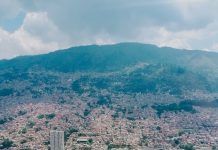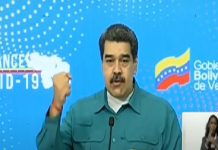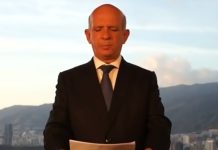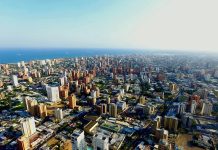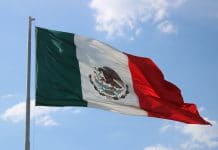The Nicaraguan regime decided to close the local office of the Organization of American States in the Central American nation, and even revoked the credentials of many of its OAS representatives. This way, the socialist dictatorship managed to formally take a bold step that many political analysts in Latin America thought it would not be possible.
After all, the main argument to sustain this idea was that, unlike many countries that decided to take this same step in previous years, the Daniel Ortega regime is way less isolated in Latin America, meaning that getting out from the OAS could have some negative consequences that Managua could definitely feel.
The situation comes after different clashes between the international body and the Ortega regime. The latest situation that made him decide to quit the OAS was right after winning his charade election, when the body criticized said his reelection was illegitimate.
On this point, it is important to remember that the Nicaraguan dictatorship recently had one of its most disgraceful moments after deciding to conduct a false presidential election that, of course, Daniel Ortega won by a landslide. This outcome was fully expected by nearly all Nicaraguans, considering that the Ortega regime controls the electoral system, and it jailed and persecuted the most popular political candidates of the Nicaraguan opposition, including writer Sergio Ramirez.
In a statement, the regime said “We ratify our unwavering decision to leave the OAS … Nicaragua is not a colony of anyone.” Of course, this type of message is not exactly a surprise, considering that the most authoritarian regimes of Latin America have expressed similar words every time they have any type of clash with the OAS.
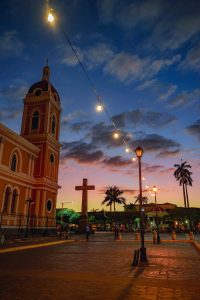
On the other hand, left-wing governments or regimes in this part of the region have been using the anti-colonialist narrative over the last few decades, to the point where they always use the victim card by claiming that their governments or regimes and persecuted for their “humanitarian” views.
Ortega regime’s decision.
Last month, Nicaragua’s then-ambassador to the OAS Arturo McFields accused Ortega’s dictatorship of repressing the political opposition, human rights abuses and cracking down on freedom of speech. His comments came after another episode where the Ortega regime blasted the multilateral international body in a public speech in Managua.
McFields’ comments were extremely controversial and surprising, considering that in most cases, members of a certain dictatorship will always defend it in context. And, of course, this defense is not only because of loyalty but also because of fear. This is something that McFields explained, the fact that he knew that accusing the Ortega regime could have the worst type of repercussions against his family.
In any case, this whole situation shows that Managua is willing to start isolating itself, knowing by the cases of Cuba and Venezuela that they could actually benefit from this situation as this will allow the regime to increase its power on an internal level.
On this point, it is crucial to understand that the cases of Cuba and Venezuela are a little bit different since they were already isolated in their own region, considering that the vast majority of governments in Latin America were deciding to cut ties with Havana and Caracas. This way, the case of Nicaragua is a little bit different, but it is a fact that this could start being the isolation process that the Ortega regime is willing to go through, in order to strengthen its grip on the Central American nation.
Once again, we are watching the horrible case of a ruthless dictator, who is willing to do whatever it takes to remain in power. Even if this means drowning the Nicaraguan people in the worst kind of nightmare.


